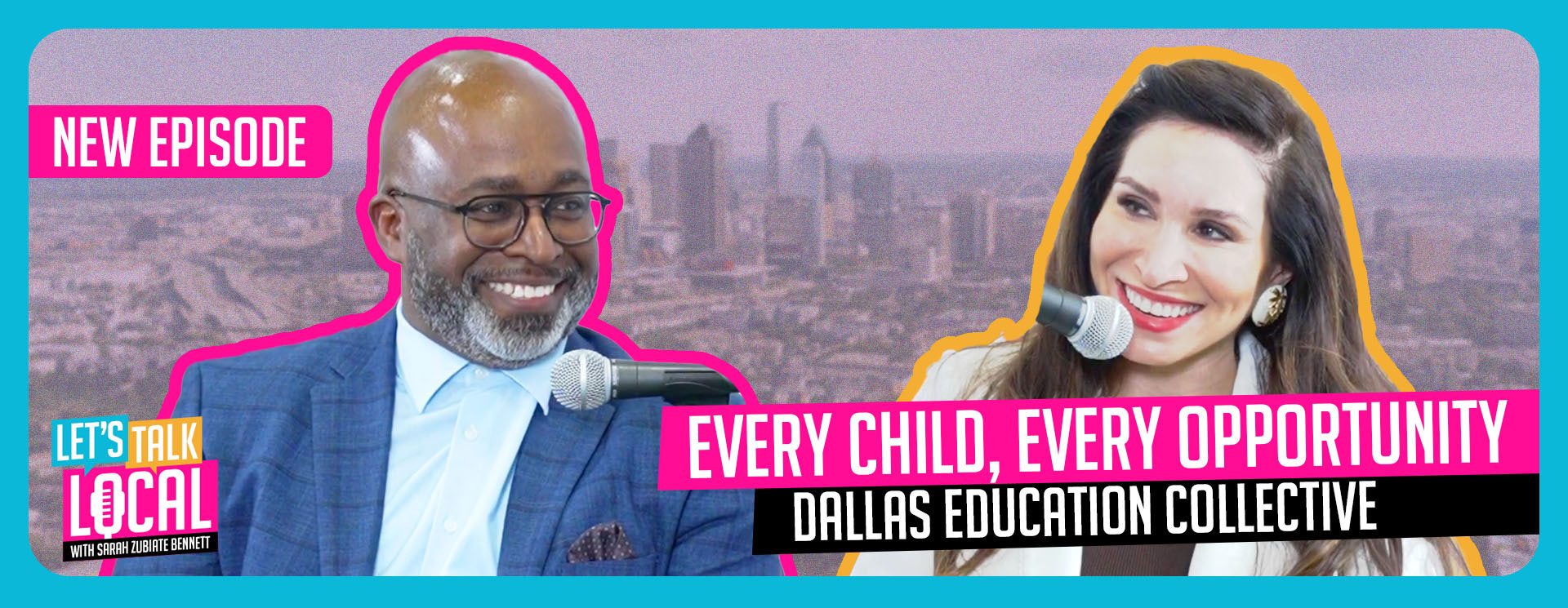Horse riding isn’t just for fun or racing but can be very therapeutic for people with disabilities that have physical, cognitive, sensory, learning, social, and emotional needs. Located within the Great Trinity Forest in Dallas, Equest, founded in 1981 and formally called the Freedom Ride Foundation, is a therapeutic equestrian center that utilizes horses to provide natural therapeutic services to children, adults, and those with diverse needs.
Equest is a PATH international premiere accredited Center and one of the largest in the country.
“This gives them a place not only to thrive intellectually, it’s strengthening them physically, it’s giving them confidence, it’s giving them a place to belong,” said Christine Volkmer, Director of Community Engagement.
“It gives them all sorts of, you know, in-person holistic benefits that they’re not going to get in this particular way anywhere else,” said Volkmer.
The different services Equest provides include Therapeutic Horsemanship, Hippotherapy with a licensed Physical Therapist or Occupational Therapist, counseling, where mental health issues are addressed with licensed professionals and therapy horses, and equine-assisted learning, where participants receive vocational training and develop social-emotional skills.
Equest also has a community outreach program that uses mini horse ambassadors that travel throughout North Texas to introduce people to the human-horse connection and their program for veterans called “Hooves for Heroes,” where active duty, retired military personnel, and first responders and their immediate family members are offered free of charge.
Equest serves various children and adults with diverse needs across North Texas.
“Equest has been a Godsend and a blessing,” said Marissa Gonzales, who has a daughter that attends therapy sessions at Equest.
“Without Equest, my daughter wouldn’t be receiving the therapies that she needs, and without their generous donations and the people that give to this organization, we wouldn’t be able to get the therapies because insurance and Medicaid don’t cover this kind of therapy,” said Gonzales.
Equest volunteer program hosts volunteer from Dallas Jesuit College Prep School and have also been known to hire longtime participants of their therapy programs.
Longtime client Ryan Wolf works at Equest part-time and has been with Equest for 20 years.
“It’s perfect. It’s a good atmosphere and a good thing for me,” said Wolf.
Equest riders also participate in national and international horse show competitions such as the Quarter Horse Congress, Snaffle Bit Futurity, and the Dixie Nationals.
“We’re pretty involved in competition,” said Lili Kellogg, Chief Executive Officer
“We do Special Olympics, we do AQHA Equestrians with Disabilities, we do shows like Chisholm challenge which precedes the Fort Worth stock show over in Fort Worth so our riders, some compete at western events, some compete in English events, some compete in both, and then a lot of our riders don’t compete at all or maybe at our program spring or show that we have annually,” Kellogg added.
Equest will be hosting its annual Ride Fest on Saturday, October 22, where the theme this year is “Welcome to the Jungle,” which features two teams, team Amazon and team Serengeti.
RideFest is Equest’s annual event that focuses on clients and raises support for the therapy horses who provide the important physical, cognitive, emotional, and social improvements that change clients’ lives.
Using horseback riding for therapy is nothing new and, in fact, has been around as early as 600 BC.
Equestrian therapy was again introduced in 1946, in Scandinavia, during the outbreak of poliomyelitis or Polio.
Equest is a nonprofit organization that relies solely on donations.
“We have a $2.5 million budget, but we have to raise that,” said Kellogg
“We also could easily use ten more horses,” Kellogg told The Dallas Express.
“We need more horses, and the horses are very special because they have to be sound, they have to be pretty unflappable. I mean, you can’t take the horse out of the horse, but they have to be really quiet, and they have to be very well trained, and they have to come with a price tag that we can afford if they’re not donated,” said Kellogg.
“That is probably the number one thing that is holding us back from increasing our number. We need more horses,” said Kellog.
Equest has eight horses ready to retire, and the average horse serves eight to ten clients weekly.
Some senior citizen horses can only serve one or two clients until the facility can find replacements.
Equest has only 34 stalls.
“To see how lives are changed because of the human-horse connection is so uplifting, and we see that every day, every day,” said Kellogg.
“When you have a family member report that their child could discontinue a medication because they’ve been in our program, it’s huge. When a teacher reports that one of their student’s handwriting has improved dramatically and they trace it back to because they’re now riding and holding the reins and getting stronger in their ability to grip and their range of motion, I mean that kind of stuff is huge,” said Kellogg.


